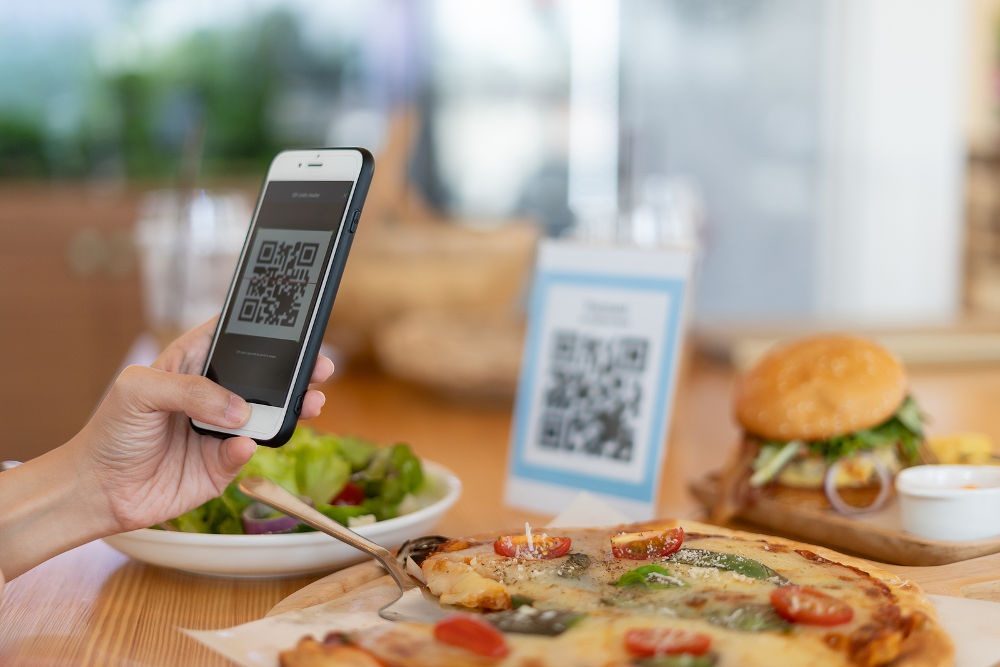Imagine a world where you can seamlessly check-in without any physical contact, order room service through an app, and even control your hotel room’s temperature and lighting with just a flick of your wrist. This is no longer a distant dream – it’s becoming a reality as more hotels embrace the concept of going contactless. Read on as we explore what exactly makes these contactless hotels so unique and appealing for travellers and hoteliers alike.
What is a contactless hotel?
In a nutshell, a contactless hotel is a technological marvel that aims to provide guests with a seamless and personalised experience, all while minimising physical contact. Gone are the days of waiting in long queues at the reception desk or fumbling for room keys – everything is now at your fingertips.
Upon arrival, you can simply complete your check-in process through an app or a kiosk via self-check-in software. No more handing over your identification documents or credit card to strangers; instead, you can breeze through the registration process effortlessly.
Once inside your room, you’ll find smart devices that allow you to control various aspects such as temperature, lighting, and even entertainment systems with just a tap on your smartphone. Need fresh towels? Just send a request via the hotel’s mobile app without having to pick up the phone.
When it comes to mealtimes, many contactless hotels offer digital menus where you can explore culinary delights from the comfort of your own device. Place an order and have it delivered straight to your table or even your room without any face-to-face interaction.

Luxury travel and privacy
Luxury travel and privacy have long gone hand in hand, as discerning travellers seek not only lavish accommodations but also a sense of seclusion and exclusivity. Privacy is a hallmark of the luxury travel experience, allowing guests to relax and unwind without any interruptions or intrusions.
In today’s world, where personal space has become more important than ever, contactless hotels offer a unique solution for those who value their privacy. With minimal interaction with staff and other guests, these hotels provide an added layer of security and peace of mind.
Gone are the days when you had to interact with multiple hotel staff members during check-in or rely on room service for your every need. Contactless hotels now offer self-check-in options through mobile apps or kiosks, allowing you to bypass the front desk altogether. This not only saves time but also ensures that your personal information remains private.
Moreover, many contactless hotels have incorporated advanced technology into their rooms, enabling guests to control various aspects such as lighting, temperature, and entertainment systems via their smartphones or tablets. This level of automation minimises human contact while still providing exceptional comfort and convenience.
For those seeking ultimate privacy during their stay at a luxury hotel, contactless services can be highly beneficial. Whether you’re a high-profile individual wanting to avoid prying eyes or simply someone craving solitude after months of lockdowns and social distancing measures – contactless hotels offer an ideal retreat.
Furthermore, the increased use of technology allows for touch-free experiences throughout the hotel premises – from accessing amenities like gyms or spas to ordering meals from restaurants within the property.

The benefits of contactless hotels
The benefits of contactless hotels are plentiful, making them an attractive option for luxury travellers seeking privacy and convenience. One of the main advantages is the increased level of safety and hygiene that comes with minimal physical contact. By limiting face-to-face interactions, guests can enjoy a worry-free stay knowing that their health and well-being are being prioritised.
Another benefit is the seamless and efficient experience offered by contactless hotels. With technology playing a key role, guests can check in and out using mobile apps or self-service kiosks, eliminating long queues at reception desks. This not only saves time but also gives travellers more freedom to manage their schedule.
Furthermore, contactless hotels provide personalised services tailored to individual preferences. Through digital platforms, guests can easily request room service, housekeeping, or concierge assistance without having to make phone calls or visit the front desk. This level of convenience allows travellers to have a hassle-free experience while maintaining their privacy.
Additionally, contactless payment options enhance security by reducing the risk of credit card fraud or theft. Guests can securely pay for their accommodations and amenities using encrypted systems through mobile wallets or online platforms.
The drawbacks of contactless hotels
As with any innovation, contactless hotels also come with their fair share of drawbacks. While the concept is appealing and has its benefits, there are a few aspects that might not sit well with everyone.
One of the main concerns is the potential loss of personal touch and human interaction. Traditional hotels have always prided themselves on providing exceptional customer service and creating memorable experiences for guests. With contactless hotels, some people may miss the warm greetings from friendly staff members or the personalised recommendations provided by knowledgeable concierge teams.

Another drawback is the reliance on technology. Contactless hotels heavily rely on digital systems for check-ins, room access, and other services. In case of any technical glitches, Wi-Fi issues or system failures, it could lead to delays or inconvenience for guests.
Additionally, while contactless technology ensures privacy in terms of limiting physical interactions with hotel staff, there might still be concerns about data security and privacy breaches when using digital platforms for transactions and communication.
Some travellers simply prefer a more traditional experience where they can interact face-to-face with hotel staff and receive personalised assistance throughout their stay. The absence of these elements in contactless hotels may leave them feeling disconnected or unsatisfied.
Final thoughts
Contactless hotels represent a shift towards convenience, efficiency, and enhanced safety measures in our increasingly digitised world. They offer numerous benefits such as streamlined processes and reduced physical contacts that align perfectly with luxury travel aspirations while ensuring privacy during your stay. However, it’s essential to recognise that these advancements also come with certain drawbacks relating to interpersonal connections and potential technological issues.
Whether you embrace this new era of hospitality or opt for a more traditional approach will depend on your individual preferences as a traveller seeking both luxury experiences and a sense of connection wherever you go.






















